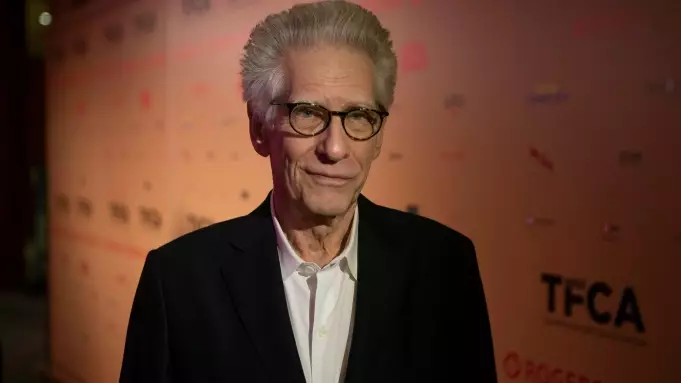In the ever-evolving landscape of cinema, the introduction of artificial intelligence (AI) has sparked significant debate, particularly evident in the recent controversy surrounding “The Brutalist.” Directed by Brady Corbet, this Best Picture Oscar nominee has faced scrutiny regarding its use of AI technology to enhance performance quality, primarily in the context of Adrien Brody’s dialogue. As accusations swirl about the film’s artistic integrity, it is clear that the intersection of AI and traditional filmmaking practices warrants a deeper, more nuanced discussion.
David Cronenberg’s Bold Defense
Renowned filmmaker David Cronenberg has stepped into the fray, passionately defending “The Brutalist” while suggesting that the criticism may stem from a larger “campaign against” the film. In conversation with Howard Shore at the London Soundtrack Festival, Cronenberg articulated the point that AI implementation is hardly a novel practice in the industry. His observations suggest a potential vindictive motive behind the backlash, reminiscent of past industry feuds, despite pointing out that the likes of Harvey Weinstein are not currently part of the narrative. This perspective asks whether critics are unfairly targeting certain films when they employ advanced technology to elevate storytelling.
Nuanced Perspectives from Industry Experts
Editor D ávid Jancs ó, involved in the film’s post-production, adds another layer to this discourse. He highlights the challenges presented by the Hungarian language, noting that enhancing dialogue through AI was a practical solution rather than a creative shortcut. Jancs ó argues that discussions surrounding AI should not be reductive but should instead focus on the tangible benefits it can bring to the filmmaking process. By enhancing performances beyond simply manipulating voices, AI can help filmmakers achieve their visions without the exorbitant costs associated with reshoots—a reality many working on tight budgets must confront.
Art Versus Technology: A Delicate Balance
The reliance on AI technology raises crucial questions about the balance between artistic vision and technological enhancement. Corbet’s insistence that the performances of Brody and Felicity Jones remain untouched apart from the Hungarian language dialogue suggests a careful and respectful approach to utilizing AI. The emphasis on preparation with dialect coaches further illustrates that technology, when used responsibly, can complement rather than replace human skill. This nuanced interplay between technology and artistry is where many advocates of AI in cinema believe the industry should focus its energy.
A Cultural Shift in the Filmmaking Approach
What emerges from this ongoing debate is a microcosm of a broader cultural shift within the filmmaking community. The integration of AI reflects a changing mindset about how technology can be harnessed to create compelling narratives. As more films explore similar techniques, the method of applying technological advancements alongside traditional artistry may redefine standards for what constitutes a worthy cinematic experience.
As the industry wrestles with the implications of AI in film, it may become crucial to foster an open dialogue, ensuring that artistic integrity remains sacrosanct, and recognizing that adaptation is an inherent part of storytelling. Instead of clinging to outdated conventions, the conversation should evolve to embrace the diverse methods filmmakers utilize to engage audiences, ensuring the story, rather than the tool, remains the primary focus.
